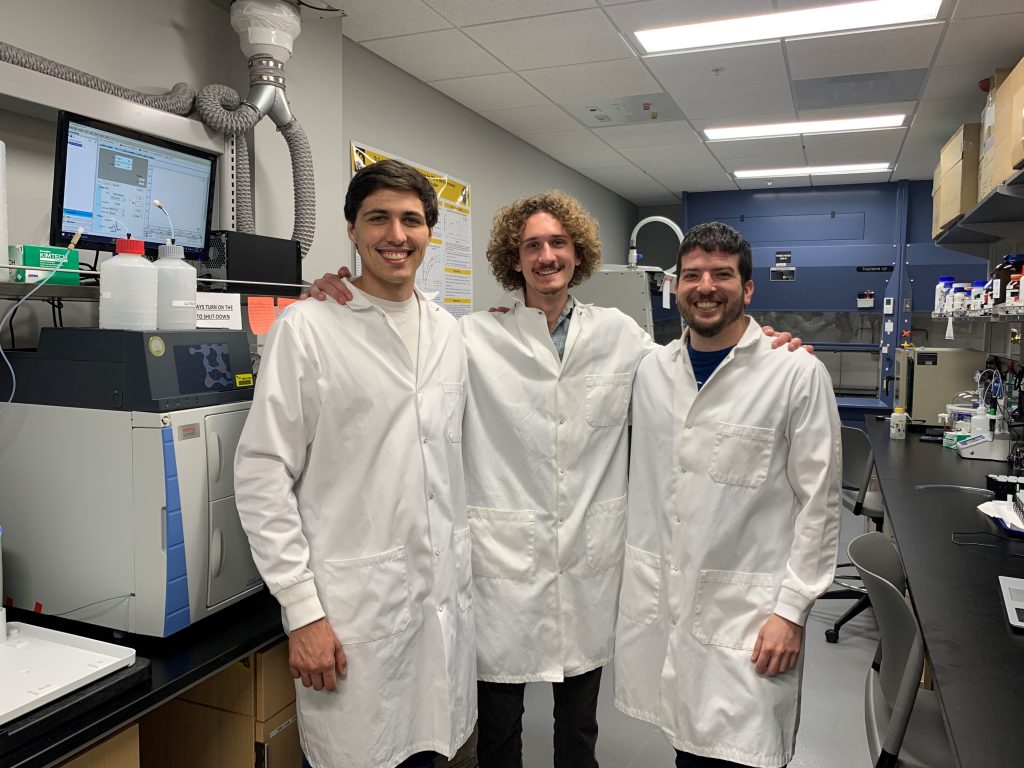Fellowships Equip Students for Careers in Nuclear Chemistry

From left: Kyle Morgan, Ian Russell and Jordan Stanberry
Three nuclear chemistry students will spend their summer deepening their expertise through fellowships with the U.S. Department of Energy (DOE).
The fellowships are based on their research and specialty, with Kyle Morgan and Ian Russell working in the DOE Science Undergraduate Laboratory Internship (SULI) and Jordan Stanberry working with the DOE Lawrence Livermore National Lab and Seaborg Nuclear Institute.
“This internship will give me the opportunity to work with top researchers and learn techniques that I wouldn’t normally get at college,” said Russell, who plans to investigate at Oak Ridge National Laboratory how isotope production can be made more efficient for medical use.
Stanberry will research the contamination produced by the test detonations of nuclear bombs at the Nevada National Security site from 1951-1992. His work will analyze the distribution of plutonium and cesium in the environment
“We’re looking at how the different radioactive isotopes are distributed in the environment and how they’re traveling through the environment so that we can predict their movement down the line,” Stanberry said. “You want to know long-term how these are going to spread, see if you can prevent them from spreading and minimize their impact on people and wildlife.”
Meanwhile, Russell and Morgan will both work under the same SULI fellowship at Oak Ridge National Lab in Tennessee. Russell will work for the Radioisotope Science and Technology Division and will research the separation process of a short-lived medical isotope called Lutetium-177. His investigation into the separation of this isotope hopes to make it more available for its use in the treatment of prostate and colon cancer.
“I got involved in Dr. (Vasileios) Anagnostopoulos’ lab at UCF because I saw the potential impact that the environmental radiochemistry work we are doing can have on understanding and controlling the spread of radioactive waste,” Russell said about his involvement in Stanberry’s research thesis. “The work we have done this year really showed me how rewarding research can be in growing my skills as a chemist and as a student.”
Morgan explained he will be working on plutonium separations. Most United States plutonium production ceased in 1989. Aside from nuclear weapons and reactors, NASA has an interest in plutonium as an energy source. This work contributes to future use of plutonium as a battery used by NASA for deep space missions.
“It’s important to research this because it’s a very specialized field that hasn’t been studied in the US for a long time,” Morgan said.
“The collaborative nature of research within the national labs will allow me to connect with specialists and professionals in areas of chemistry and physics that I otherwise would not have worked in,” Russell said. “Along with building a network of professional peers, I will take this internship as an opportunity to learn from my research mentor and collaborators and gain experience that can only really happen in a hands-on format.”
